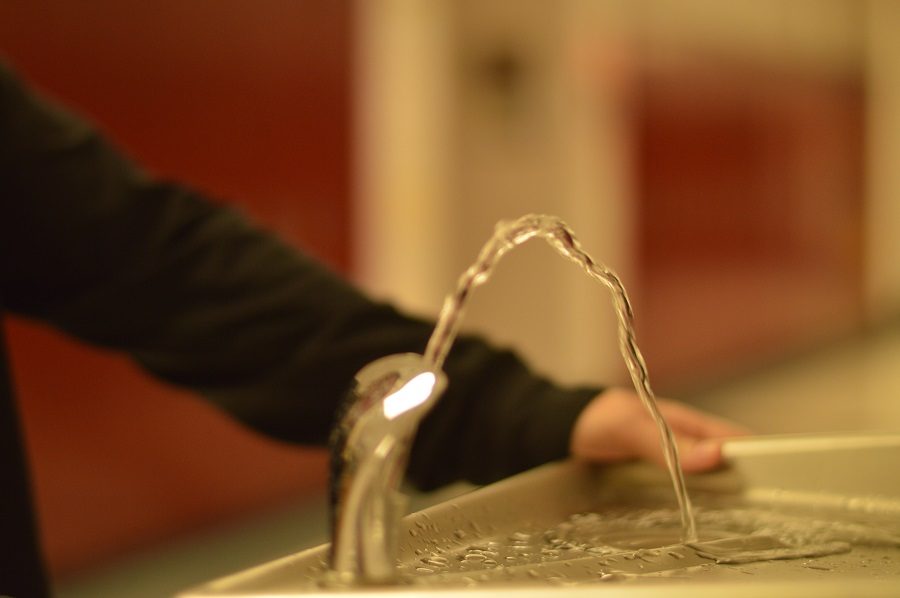Report Finds Dangerous Lead Levels in Some Schools’ Drinking Water
Board of Education (BOE) member Jill Ortman-Fouse has introduced a resolution to replace water fountains with water bottle filling stations for students, which includes features that help filter out lead. Installation would cost $1.1 million,
December 20, 2018
After testing MCPS water fountains last summer and finding alarming levels of lead in certain schools, Board of Education (BOE) member Jill Ortman-Fouse introduced a $1.1 million resolution to purchase new water bottle filling stations for every school in the county.
Testing within schools found that 63 water fountains–the majority in elementary schools–had lead levels that were dangerous for students to consume and 86 had elevated levels. The United States Environmental Protection Agency (EPA) has identified a safe level to be 15 parts per billion (ppb). Multiple schools throughout MCPS, such as Lucy V. Barnsley Elementary School and Maryvale Elementary School had water fountains with levels over 20 ppb. Water fountains with elevated, dangerous levels are no longer in use by students or staff.
“Children may not be more adversely affected by lead, but the manifestations or signs of lead toxicity are different in children and adults,” said Dr. Bruce Lanphear, a professor of Faculty of Health at Simon Fraser University whose research aims to prevent disease in children. “Children exhibit behavioral problems, like ADHD or learning problems. Adults exhibit an increased risk for dying from coronary heart disease from a lifetime of exposure.”
Lead in water can lead to behavioral and learning problems, lower IQ and hyperactivity, slowed growth, hearing problems and anemia, according to the EPA.
Ortman-Fouse’s resolution has not been approved yet, and there is confusion about when the water filling stations would be installed.
“I feel like it’s an urgent need, and the counsel has said that they could approve the budget for it as soon as January. And then we could work on it,” Ortman-Fouse said. “Unfortunately, our facility staff said that they don’t think they could start on it till June.”
RHS currently has one of these water filling stations, located near the auxiliary gym. However, recent news reports about lead in water has caused students to be concerned.
“After hearing this, I’m most likely going to reconsider drinking from the school’s water fountain. It’s scary not knowing what’s in the water being provided to students every day,” senior Alyson Kren said.
The water filling stations would be equipped with more filters than current water fountains. This helps filter out lead and other bacteria, leading to cleaner and safer water. The exact funding source has not yet been determined but some MCPS schools have already installed new water bottle filling stations without county funding, relying on their Parent Teacher Student Association (PTSA).
“Although I think there are many other ways we could spend the school’s money, I do believe that installing water bottle filling stations would be a good investment,” Kren said. “So many people, including myself, bring water bottles to school every day and this investment would most likely allow a safer source for student to get water.”




